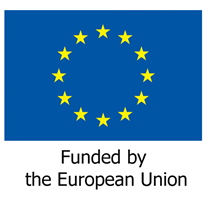Johannesburg, 15-17 March 2023 – UNODC in collaboration with the South African Judicial Education Institute (SAJEI) convened a Judicial Colloquium Against Trafficking in Persons (TIP) and Smuggling of Migrants (SOM) in Johannesburg, South Africa from the 15 to 17 March, which is part of UNODC priorities in the SADC Region in enhancing the capacity of criminal justice practitioners in the response to human trafficking and smuggling of migrants using human and victim centred approaches under the joint UNODC-SADC Regional Programme (2013 -2023). The Regional Programme aims to support the SADC countries to respond to the evolving threats and challenges related to crime, drugs, and terrorism in all its manifestations.
The objectives of the training were to strengthen capacity of Judicial officers to effectively address trafficking in persons and smuggling of migrants with a special emphasis on vulnerabilities of victims, migrants and the trauma they suffer; strengthen Judicial officers’ understanding of vulnerability and its role in presenting challenges to evidence and using tools that explain psychology and culture with special emphasis on child victims to resolve the evidential challenges and lastly to build the capacity of judicial officers on Sentencing principles on anti-trafficking in persons. The training workshop was in line with UNODC Strategic Vision for Africa 2030, which aims to provide innovative ways to support Member States and stakeholders over the next 10 years to strengthen crime prevention, enhance the effectiveness of criminal justice systems, counter organized crime, and corruption, promote balanced drug control and improve the rule of law. Furthermore, UNODC is committed to gender mainstreaming and exercises a proactive gender perspective in the process of assessing the implications of any planned action for both women and men, hence, the workshop was designed in line with UNODC Gender Strategy.
In the Southern African Development Community (SADC), one unique trend that stands out in the region is that convictions on human trafficking remain low. UNODC has over the years convened Regional Judicial Trainings on Combating Trafficking in Persons for Judges and Magistrates in order to strengthen the adjudication of trafficking in persons cases. The convening of judicial colloquiums on anti-trafficking in persons and anti-smuggling of migrants remains a key intervention in the response to human trafficking and smuggling of migrants in the region.
During the official opening of the workshop, Dr. Gomolemo Moshoeu. Chief Executive Officer, South African Judicial Education Institute (SAJE) said that “judicial education on emerging crimes like human trafficking is extremely important. Complex legislation which we continue to draft, and other legal issues in today’s world require continual education and training. In addition, increasing media scrutiny also require that our judicial decisions are appropriate, fair, and palatable to the general public to whom we account”. UNODC has over the years provided technical support to the Republic of South Africa on the domestication of the Trafficking in Persons Protocol. This support has involved the strengthening the collection and analysis of human trafficking data, supporting the harmonization and operationalization of the Trafficking in Persons Act, building the capacity of criminal justice practitioners on combating trafficking in persons and smuggling of migrants especially front-line law enforcement officers and just recently the development and finalization of the National Policy Framework on combating trafficking in persons.
The outcomes of the workshop include the following: the South African Judicial Education Institute (SAJEI) will continue to collaborate with UNODC to convene Judicial colloquiums for Judges and Magistrates across South Africa especially training of trainers (TOTs) sessions in order to enhance the sustainability of the initiatives, a Regional Judicial Colloquium on address Trafficking in Persons and Smuggling of Migrants will be convened in 2023, SAJEI and UNODC finalized the Anti-Trafficking in Persons Judicial Handbook for Judges and Magistrates in South Africa.
The training workshop was attended by Judges and Magistrates from KwaZulu Natal, Eastern Cape and Western Cape provinces in South Africa; officials from South Africa Judicial Education Institute (SAJE) and UNODC officials.
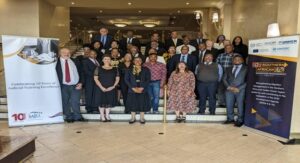
Group photo of participants
This Judicial Colloquium was held under the Southern Africa Migration Management (SAMM) Project which is a model of ONE-UN approach collaborative effort between 4 UN development and humanitarian agencies: the ILO, the IOM, UNODC and UNHCR. The overall objective of this programme is to improve migration management in the Southern Africa and Indian Ocean region.
 Português
Português
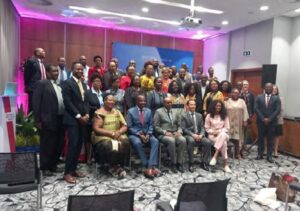
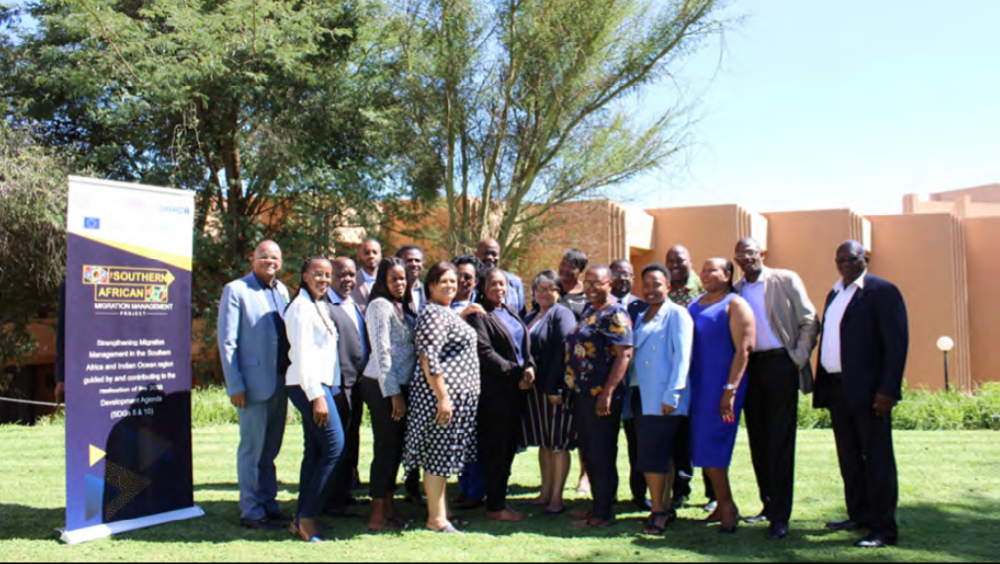
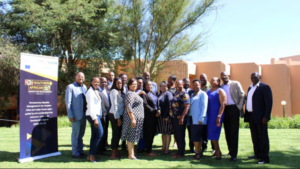 Government officials engaged on a technical exercise where they identified priorities within the NMP. The need to Strengthen the migration policy, legal, and institutional frameworks through the use of the Migration Profile to support well-evidenced and data driven policies was echoed during the workshop. Furthermore, it was encouraged that there be ratification of remaining international conventions of the ILO and UN and the effective implementation of all ratified international and regional instruments and ensure effective harmonization of national migration policy and institutional frameworks with international instruments of the ILO and UN.
Government officials engaged on a technical exercise where they identified priorities within the NMP. The need to Strengthen the migration policy, legal, and institutional frameworks through the use of the Migration Profile to support well-evidenced and data driven policies was echoed during the workshop. Furthermore, it was encouraged that there be ratification of remaining international conventions of the ILO and UN and the effective implementation of all ratified international and regional instruments and ensure effective harmonization of national migration policy and institutional frameworks with international instruments of the ILO and UN.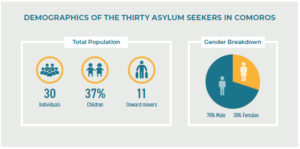
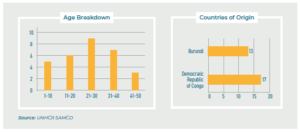
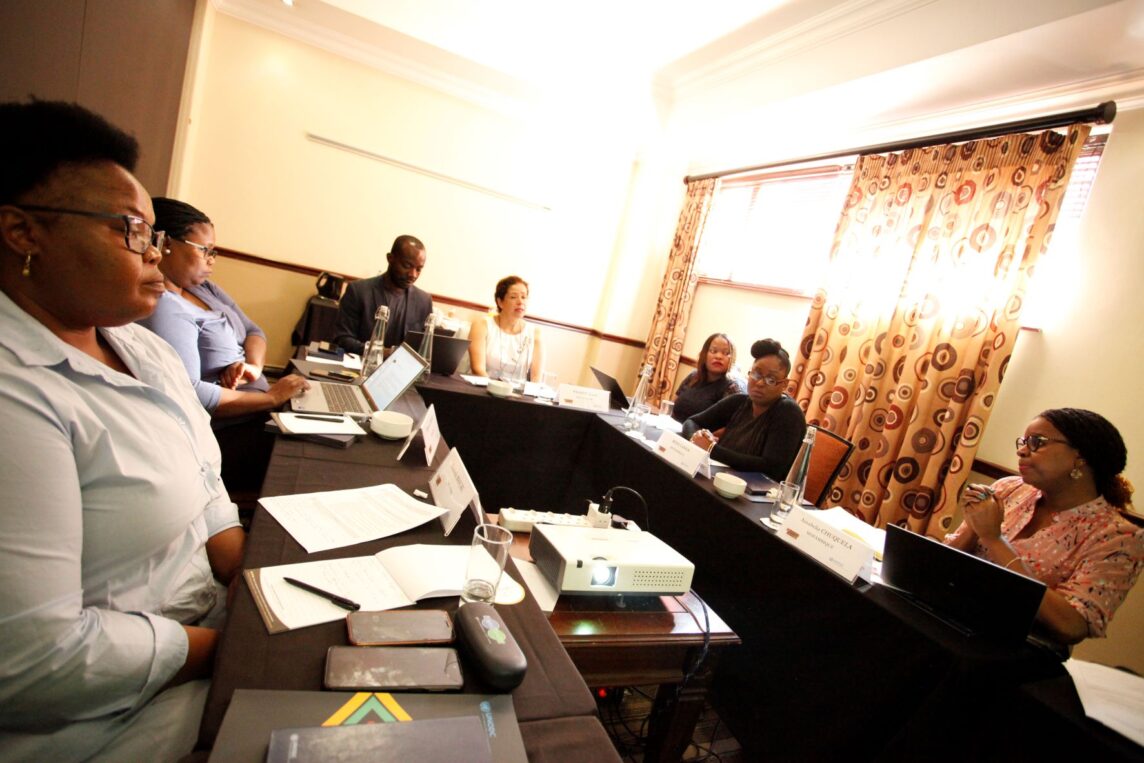
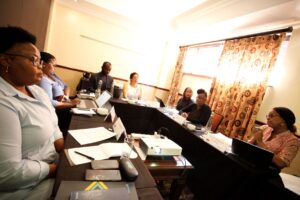
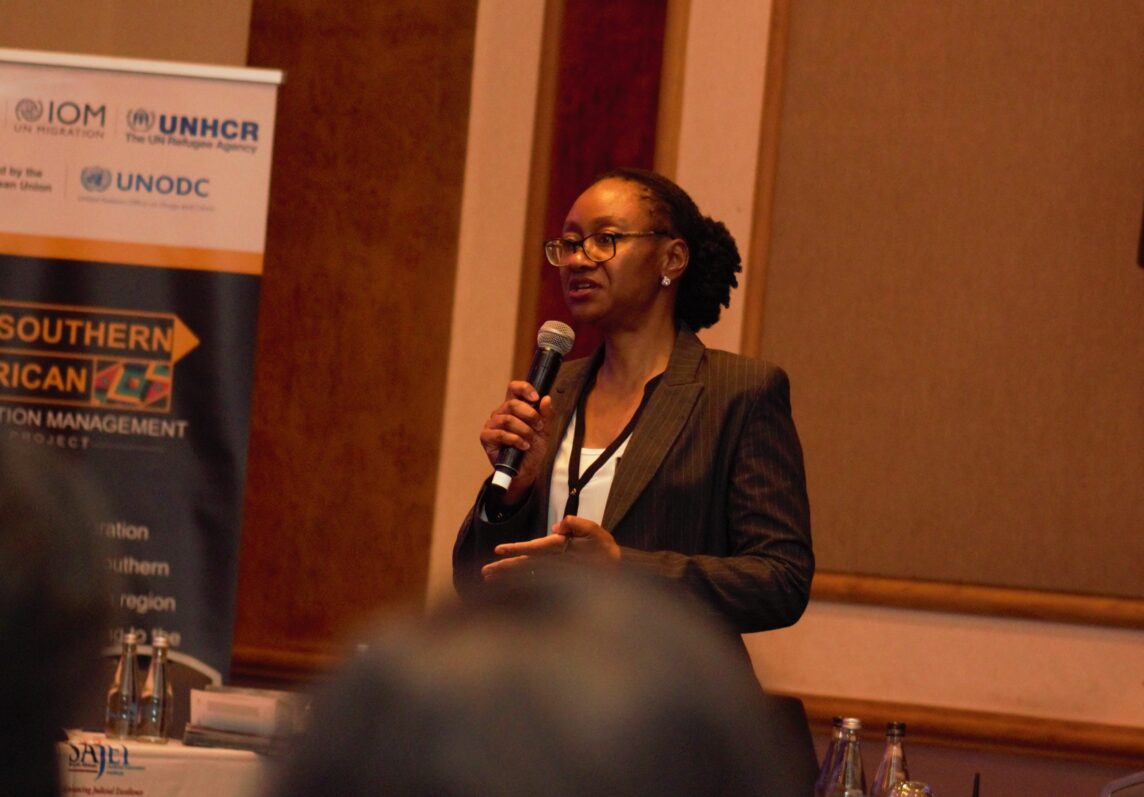
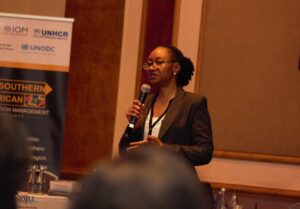
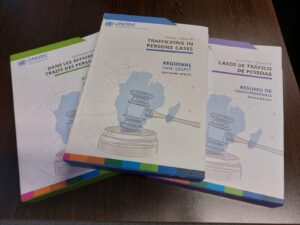
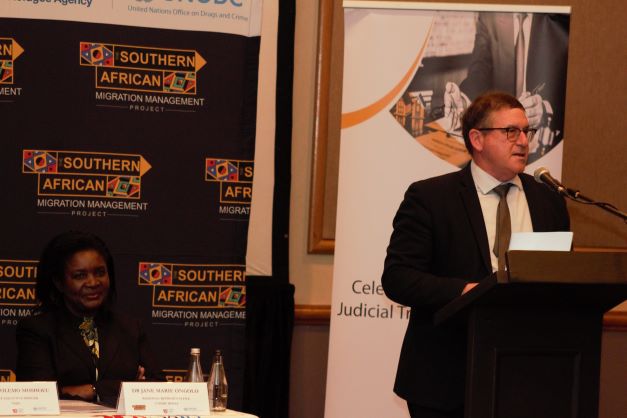
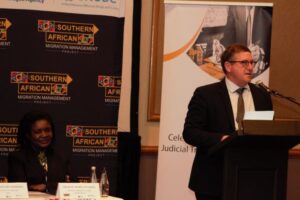
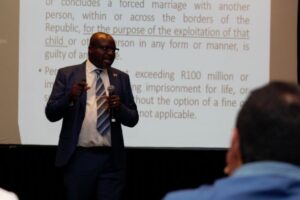 South Africa’s Deputy Minister of Justice and Correctional Services John Jeffery has acknowledged the general low level of prosecution for the crime of trafficking in persons globally, saying in South Africa such cases were usually anecdotal and existed mainly in public discussions, including on social media.
South Africa’s Deputy Minister of Justice and Correctional Services John Jeffery has acknowledged the general low level of prosecution for the crime of trafficking in persons globally, saying in South Africa such cases were usually anecdotal and existed mainly in public discussions, including on social media.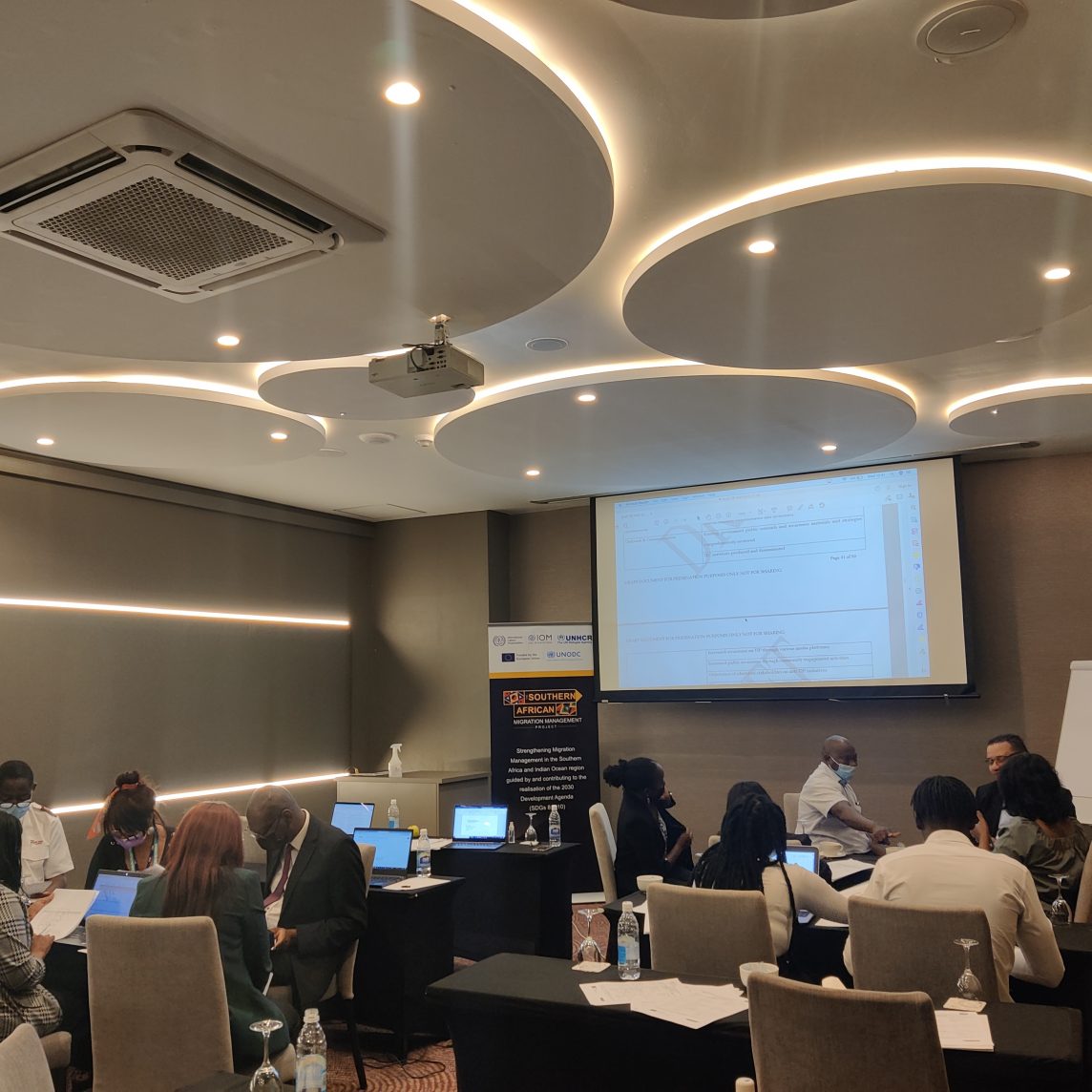
 3- 4 November, Windhoek, Namibia
3- 4 November, Windhoek, Namibia